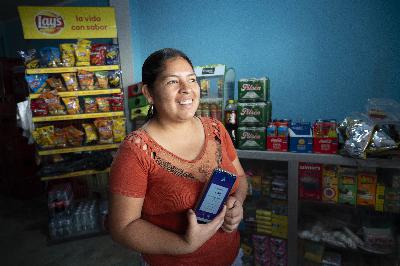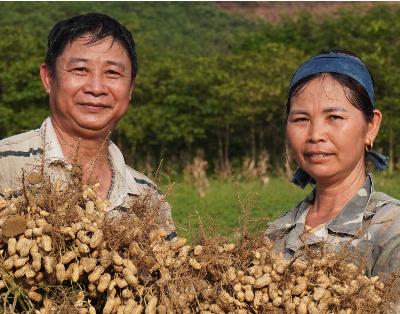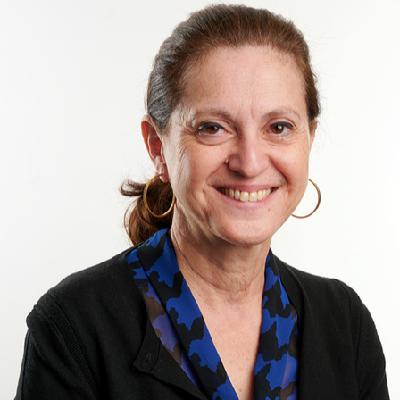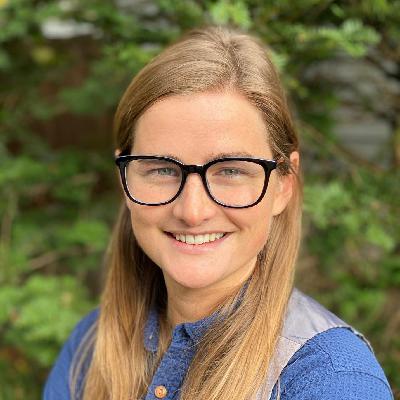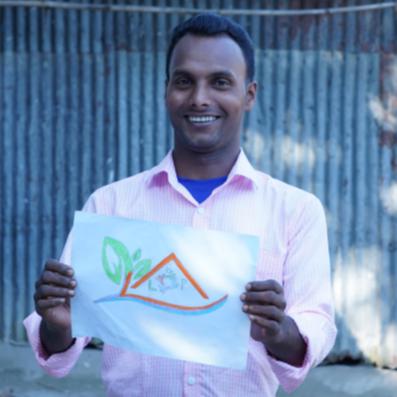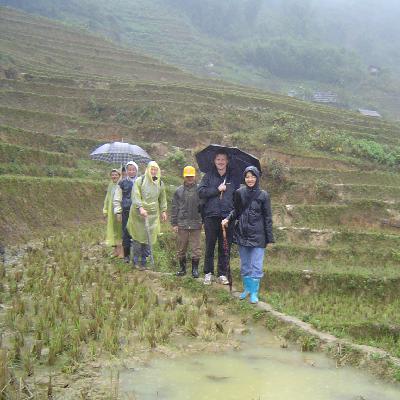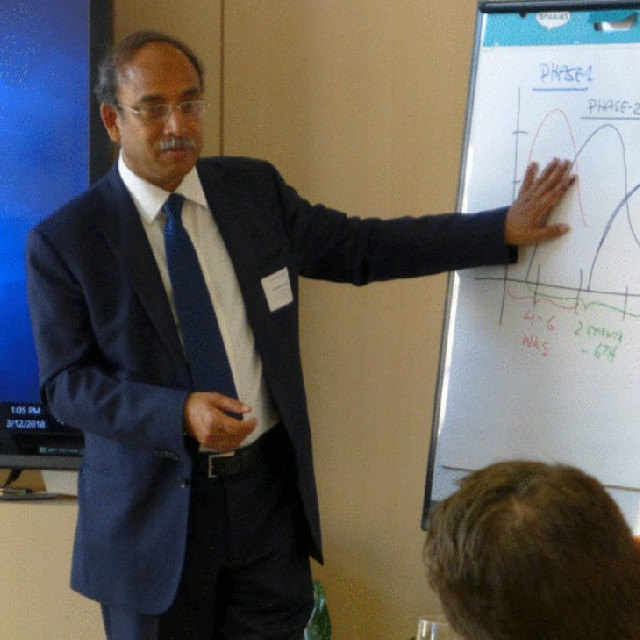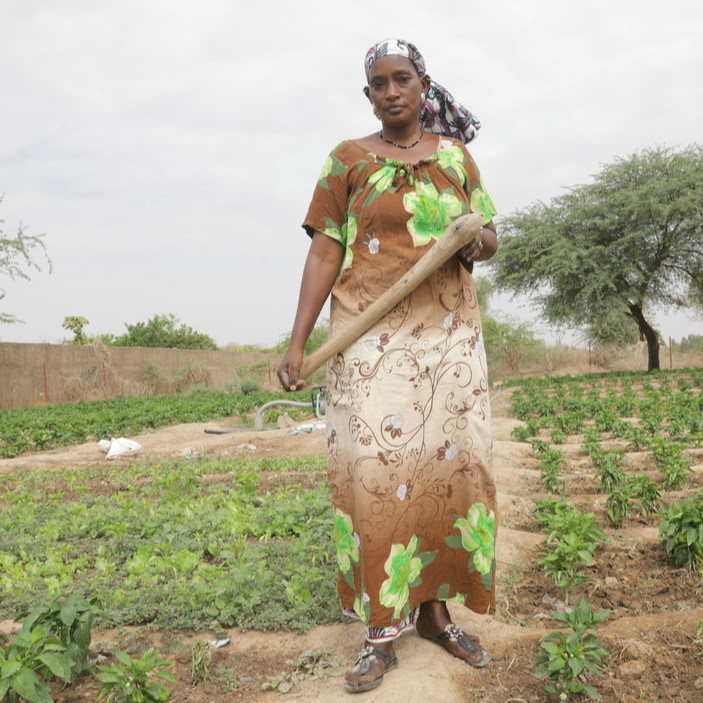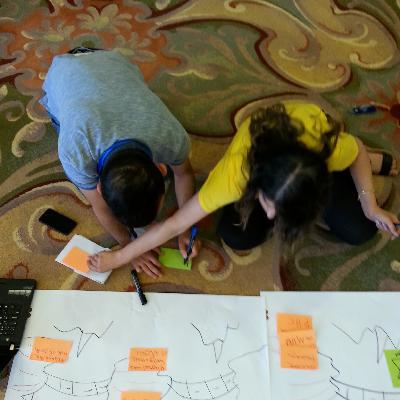Discover CARE Failing Forward
CARE Failing Forward

CARE Failing Forward
Author: Emily Janoch
Subscribed: 8Played: 126Subscribe
Share
© Copyright 2026 All Rights Reserved
Description
CARE staff and other guests around the world talk about experiences we learn from failure, ways to create safe space to talk about failure, and how we use that to get better at our work.
114 Episodes
Reverse
Eric Kaduru and Julia Arnold talk about why simply distributing phones doesn't help people--especially women--access the internet. After seeing free phones get broken, stolen, or cause men to punish women for owning phones, they needed a new plan. Instead, they talked about learning from HIV prevention campaigns in the 90s, demystifying something complex, and making learning accessible. Social norms are at least as important as technology. Soap operas, hip hop concerts, and talking to men are critical tools in opening up access to tech for women in Uganda, and worked better than free phones ever have.
CARE has a more than 30 year history with savings groups--starting from the lowest tech version you can possibly imagine: 25 women with a box and a notebook in Niger. Building on that, in 2013, we launched the process of building Chomoka--an app that would help women in savings groups manage their record keeping and connect to digital finance. Christian Pennotti talks about that journey, and why we finally passed the work over to Ensibuuko. Building a successful, scalable enterprise around digital tools was ultimately better put in the hands of a tech company that focuses on banking tech for people who can't access existing tools. What did we learn, and what are we doing now? Tune in to find out.
What happens when you try to build an AI tool that works for women entrepreneurs – and it totally flops? In this episode of Failing Forward, CARE’s Koheun Lee and Sarah Hewitt share the story of their ambitious attempt to create a women-centered GPT trained on real-world data from women entrepreneurs. Spoiler: it didn’t go as planned. But the failure revealed a lot.
In this episode, Koheun and Sarah discuss:
Why CARE built a custom GPT to fight bias, and what went wrong
How even well-trained AI tools can reinforce stereotypes and exclude women
What we learned about prompt design, user behavior, and the limits of scrappy innovation
Why most users still defaulted to mainstream AI tools
Actionable tips for using AI more intentionally, and with less bias
What this "failure" taught us about building better tools and better teams
Tune in for a candid conversation about tech, bias, and what it really means to learn in public. To learn more and join the conversation, visit the Women’s Entrepreneurship LinkedIn Community of Practice.
"If you've already built an elevator to the first floor, why not take it all the way to the top?" Vidhya Sriram talks about the journey of savings groups (also called VSLAs) at CARE, and what it took to think not just about scale, but also about the biggest benefits to women. VSLAs do build savings and income, but they can also do so much more. She talks about understanding what women themselves aspire to, not what we aspire for her. She also talks how savings groups can be a platform for women to build economies, change the support women get from the people around them, and thinking about building not just savings, but also equality that benefits the whole community. Check out the report here.
What happens when you don't see the results you hoped for in your project? If you're Dr. Nahla Abdel-Tawab from Population Council, you publish your results, learn from them, and try again. Some of the biggest barriers they faced were: assuming that private sector health solutions were the answer, asking workers the wrong questions about what they needed, and not understanding the context that garment factory workers in Egypt deal with when trying to access health care. Great examples of learning, admitting that it didn't work, and finding a better way to get results. You can see more about the project here.
What does it take for people and the planet to thrive? We have to show up. C.D. Glin, President, PepsiCo Foundation and Global Head of Social Impact, PepsiCo. After decades in social impact, government, and philanthropy, C.D. talks about some of his earliest lessons as a Peace Corps Volunteer in the new South Africa, and the inspiration of Nelson Mandela’s quote, “I never lose. I either win or learn.” Appreciative inquiry, meeting people where they are, and knowing you don’t have all the answers or some of the key lessons.
What happens if we stick with business as usual? We fail by default. C.D. Glin, President, PepsiCo Foundation and Global Head of Social Impact, PepsiCo, Inc talks about food systems are failing women, and what companies can do to correct for that. Thinking with a whole of company approach, beyond just philanthropy, is critical. Companies have to use their profits, their products, their procurement, their people, and their markets if we’re going to achieve #zerohunger. He talks about how COVID-19 was a wake up call to the visceral challenges in the global food system—like climate change and inequality—and how to turn a moment into momentum. He also talks about how projects like She Feeds the World can help address these challenges.
Tahira Nizari and Barnabas Mtelevu talk about what it took to overcome the challenges in the tea sector in Tanzania, and how assuming that smallholder women farmers could immediately join a global supply chain demanded new partnerships and new plans. How do you grow from an individual farmer to a business? Don't assume it will happen automatically. Just because you're a businesses doesn't mean it will work. On the other hand, you can't assume a development project is set up to meet market needs. A demonstration factory, joint ownership with women farmers, and getting global investment were part of the key in shifting to a more business mindset in the partnership between CARE and Kazi Yetu. It led to a 17% increase in tea prices and an 83% ROI. Learn more about how they did it here.
What happens when your consultation processes go off the rails? Lauren Beriont from The Emgergence Collective talks about how a lot of our feedback and co-creation processes face three major problems:
1) They assume a trust that does not exist between different stakeholders
2) They are centering the wrong actor--the donor or the most powerful group in the process--instead of focusing on the impact the world needs to see.
3) They are looking to validate a plan that is already in place (but maybe not on paper yet), not create a new plan
How do we fix that? Have scary conversations. Talk about what's not working, what assumptions people holding, and tackle real power dynamics. Look at what impact donors expect, vs. the kind of impact people are actually seeing happen.
What's in a logo, and why does localization need to include participant-led logo design? Zinat Ara Afroze and Sairana Ahsan explore the logo competition to have frontline service providers design a logo for their own services. What did they learn? Only 9 people out of a potential 450 participated in the competition the first time around, and understanding why not, and what level of understanding it takes to draw a logo that sums up your job showcased how much more shared understanding there was to build. Zinat's recommendation for what you should do? Practice adaptive management and CLA. Check out their case study here.
Inspired by his recent blog post on From Poverty to Power, Duncan Green reflects on why it's important to learn from failure, and some of his own failure stories. "Think before you jump", and "be a reflectivist as well as an activist" are some of his key pieces of advice to people working in the sector. He's got stories about playing chess from the management bunker, evidence-based humility, and How Change Happens, the second edition paperback and Open Access that's coming out starting from August 16.
Want to hear more stories from Duncan and the change makers he works with? Listen to his podcast: GELI Stories podcasts
"I wish I had known that my biggest source of learning would be my field colleagues. ...I believed in textbooks." Dr. Muhammad Musa reflects on 41 years of work in international development. His two biggest lessons are: learn from your frontline staff, and tell stories with impact. Some lessons he learned in the decades are to build a fearless climate--a climate of trust, where staff at all levels can learn from failure, and can take time to reflect. He also notes that moving from a project to a movement--one that changes a system--is the best way to create change. Technical solutions are not the only (or even the best) way to get the job done.
The Feed the Future Mali Sugu Yiriwa operates in the Delta Zone of Mali, aiming to strengthen the resilience of farming and business communities through market-driven, inclusive, nutrition-sensitive, and agriculture-driven economic growth. However, the complex nature of Mali’s political situation poses significant challenges to program implementation and participant outreach. In this episode of the Failing Forward Podcast, Laurore Antoine, Chief of Party for Sugu Yiriwa, shares valuable insights into how adaptive leadership, collaboration with local grassroots organizations, and strategic use of digital solutions, among other adaptive management approaches, have been instrumental in achieving program goals and positively impacting lives in Mali.
Christabell Makokha talks about always anchoring innovation to the success metric: have I solved the problem? Instead of focusing on the process, focus on the problem, and whether or not people's lives are getting better. She reflects on why innovation labs fail (inspired by this article from ICTworks). What's going wrong?
We define innovation as "the next new thing" rather than leveraging creative problem solving.
We struggle to find the balance between stand-alone innovation work and innovation integrated with existing programming
We measure the wrong things--too much process measurement, and not enough problem-solving.
Our risk appetite is too low, and our timelines are too short.
You’ve done the desk literature reviews, collected and conducted field studies, crafted and deployed surveys, analyzed the data, written up the results, and released your study findings. Is it having any real influence or impact? How do you know? Laura Kim and Michelle LeMeur of the Canopy Lab wrestled with these questions when they attempted to trace uptake by stakeholders of their studies on COVID-19 and the international development workforce: https://www.marketlinks.org/blogs/beyond-downloads-views-and-likes-how-do-you-know-your-research-having-impact
Titukulane's progress was achieved by addressing the failures it faced in the years leading up to 2023. When the program was first implemented, the COVID-19 pandemic swept the world, making it extremely difficult to implement field-level activities. However, Titukulane was able to turn around its failures by starting from the roots and addressing every aspect of the program. They focused on team building and cross-functional teamwork, built the capacity of the M&E teams, made field engagement a regular task for everyone involved, and engaged participants in multiple activities to diversify their income while keeping sustainability in mind. This was no small feat. Listen to Daniel Abbott, the Chief of Party of Titukulane, as he speaks about how closely he worked with the team to address every detail and achieve where Titukulane stands today.
Maria Alemu and Gregory Makabila talk about the Ifaa project's Failure Summit, and what it took to create a culture where failure spurred reflection, learning and action. Lessons from Saint Yared, a learning from failure roadmap, pre-mortem exercises, and the 5 Whys of Failure were all key tools that helped the team learn, adapt, and improve. Check out their reflections, what they would do differently, and the diverse range of tools that helped the team embrace failing forward.
Ifaa is a USAID-funded RFSA project that CRS leads in Ethiopia.
It's not easy or obvious to not only work with adolescent girls in crisis settings, but also to let them lead. But it is possible. AMAL currently operates in Syria, Nigeria, and Somalia, addressing the unique vulnerabilities of adolescent girls in crisis settings, such as early marriages and adolescent pregnancy. The program includes components like a Young Mother's Club, Community Dialogues, and a health provider curriculum to improve sexual and reproductive health service uptake and enhance participants' life skills. Our guest speaker, Pari Chowdhary, highlights the importance of relationship investments, continuous quality improvement mechanisms, and including adolescent girls in program design and evaluation. The final hope is for the program to be owned and run locally by the adolescent mothers themselves.
Katharine Nasielski, Pari Chowdhary, and Brittany Dernberger talk about Fast and Fair-- CARE's work trying to get COVID-19 vaccines out to the world to meet the global deadline for 80% vaccination rates by September 2022. Advocating for funding and policy change, running programs to support vaccine delivery around the world, and trying to measure global to local impact are all places where we've learned a lot about what we need to do next time. Because like it or not, we need to prepare for a next time. Consistent investments in innovative, nimble, and adaptable are our best shot for future pandemic preparedness.
If you looked at a problem and thought, "the answer is more capacity building and more guidelines" Florence Santos says you might need to think again. Based on her experience leading Monitoring and Evaluation at CARE, she's seen a proliferation of tools and resources that aren't really solving the underlying solution. If it's the recommendation you would always have made under any circumstances, you're probably not looking carefully enough at the solution. Florence reflects on how she would get to a solution with fewer tools and trainings, and more systematic follow through.




